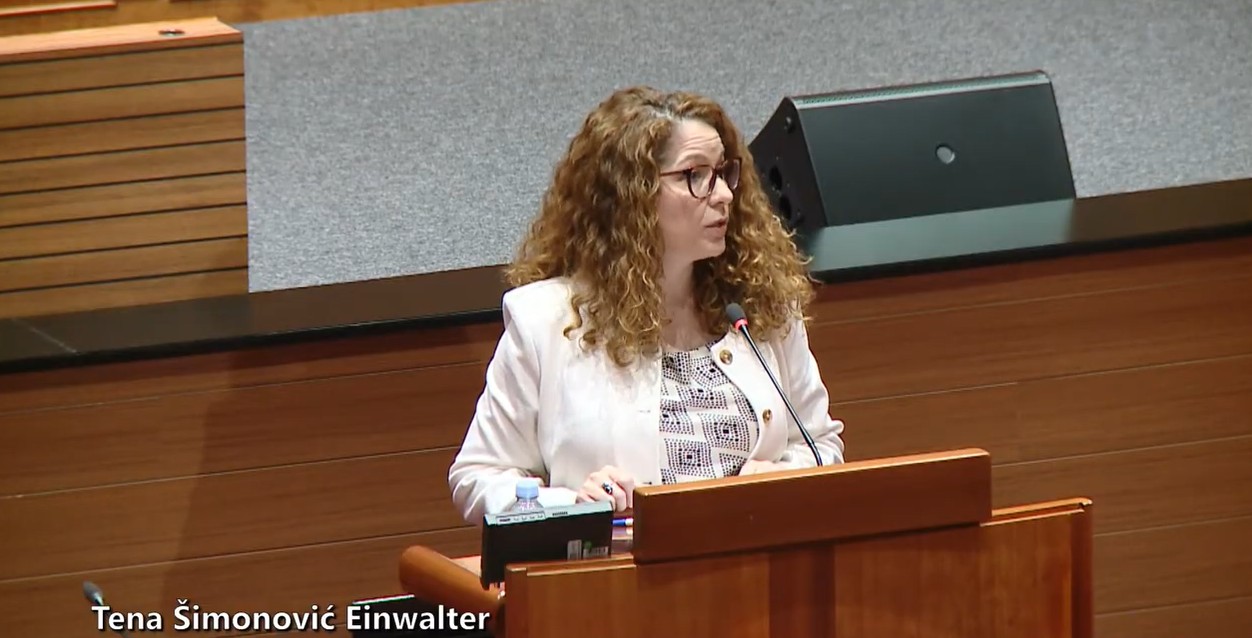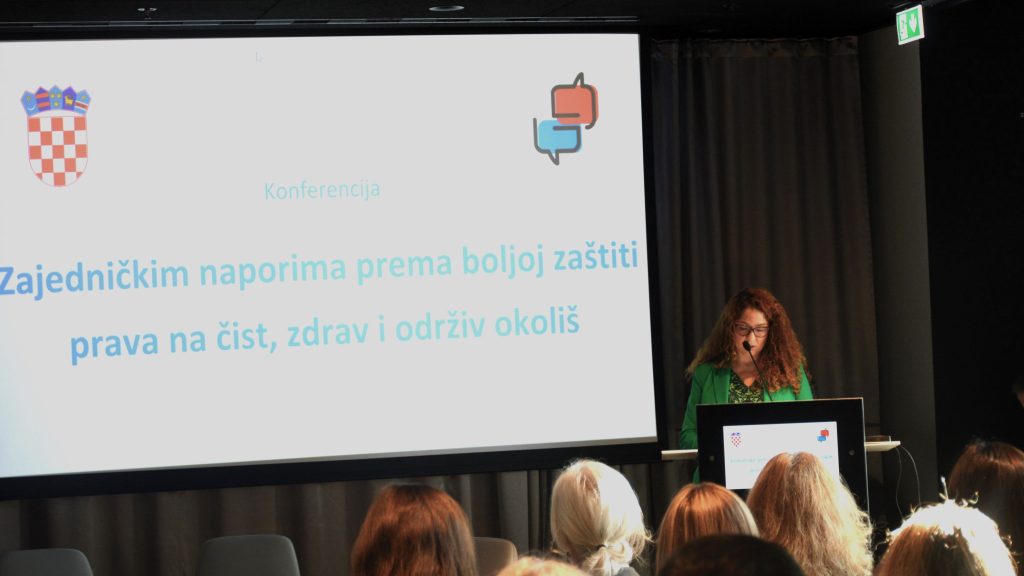The Croatian Parliament debated the 2022 Annual Report of the Ombudswoman at its plenary session held on 12 June 2025. On 27 June, the Parliament acknowledged the Report with 106 votes in favour, one against, and one abstention.
Ombudswoman Tena Šimonović Einwalter submitted this Report within the statutory deadline, on 31 March 2023, and in July of the same year, the Government of the Republic of Croatia adopted its opinion on the Report. All conditions for a plenary debate were thus met, yet the Parliament held the debate only in June 2025.
At the same time, the Government had still not adopted its opinions on the Ombudswoman’s reports for 2023 and 2024 at the time of the debate, nor on the Special Report on the Impact of the COVID-19 Epidemic on Human Rights and Equality. As a result, the Parliament is unable to debate these reports.
In her opening remarks, Ombudswoman Šimonović Einwalter highlighted the unacceptable practice of the Croatian Parliament and the Government of the Republic of Croatia in “freezing” the reports of the Ombudswoman as an independent institution. These are not merely technical issues, but political decisions and practices that must come to an end, she emphasised.
This approach reflects an unacceptable attitude of the Parliament and the Government toward citizens who turn to the institution with their problems; toward the state of human rights, which should serve as a compass for the work of both Parliament and Government and whose protection they are obligated to strengthen rather than weaken; and toward an independent institution established by the Constitution of the Republic of Croatia, according to which the Ombudswoman is an appointee of the Croatian Parliament for the promotion and protection of human rights, with equality and respect for human rights among the fundamental values of the Constitution.
Stating that it is precisely the Parliament that has the power and responsibility to put an end to this practice, the Ombudswoman proposed that the Rules of Procedure of the Croatian Parliament be amended to stipulate that reports by the Ombudswoman, as well as by other independent institutions, must be debated in the same year they are submitted. This applies in situations where the Parliament has the conditions to hold the debate and where the issue is merely whether to include the item on the agenda—as was the case with the 2022 Report.
In this context, she also raised the question of whether it is necessary at all for the Government to provide a prior opinion on reports by independent institutions submitted to the Croatian Parliament. If so, she proposed setting a deadline by which the Government must send its opinion to the Parliament, in order to ensure that the absence of the Government’s opinion does not prevent a debate in Parliament, and so that the debate can be held in the year the report was submitted. This is relevant in light of the reports for 2023 and 2024, which cannot be debated in plenary session as the Government has yet to provide its opinions.
She also raised this issue in relation to the still undebated Special Report “The Impact of the COVID-19 Epidemic on Human Rights and Equality – Recommendations for Strengthening Resilience to Future Crises.” This Special Report was submitted to the Parliament three years ago, in May 2022, but as the Government has not yet adopted an opinion on it, it too cannot be debated in a plenary session. This Report is not merely a retrospective on the epidemic period, but seeks through 72 recommendations to foster and guide efforts to strengthen Croatia’s resilience to various crises, which is particularly relevant in light of numerous global instabilities.
This treatment by the Croatian Parliament and the Government of the Republic of Croatia amounts to an attempt to marginalise and silence this independent institution. However, the reality is different—as public trust continues to grow, evidenced by a record number of complaints, and the institution is recognised at both European and global levels as an example of good practice.
The Ombudswoman also continues to publicly highlight the problems faced by citizens and to propose solutions—bringing these issues into the public spotlight when there is no opportunity to do so in Parliament. She emphasised this as a matter of her responsibility toward the independent institution she leads, the citizens who expect the institution to function effectively, and the fundamental constitutional and European values.
Most of Ombudswoman Šimonović Einwalter’s address was dedicated to the problems brought to her attention by citizens in 2022, along with indicators of whether the situation has since improved or worsened.
The full address is available in the recorded video here.
Before the plenary session, the 2022 Annual Report of the Ombudswoman was also discussed on 10 June 2025 by the Committee on the Constitution, Standing Orders and Political System and the Committee on Human Rights and the Rights of National Minorities.
You can access the Ombudswoman’s Report in its [online version] or [PDF version].





